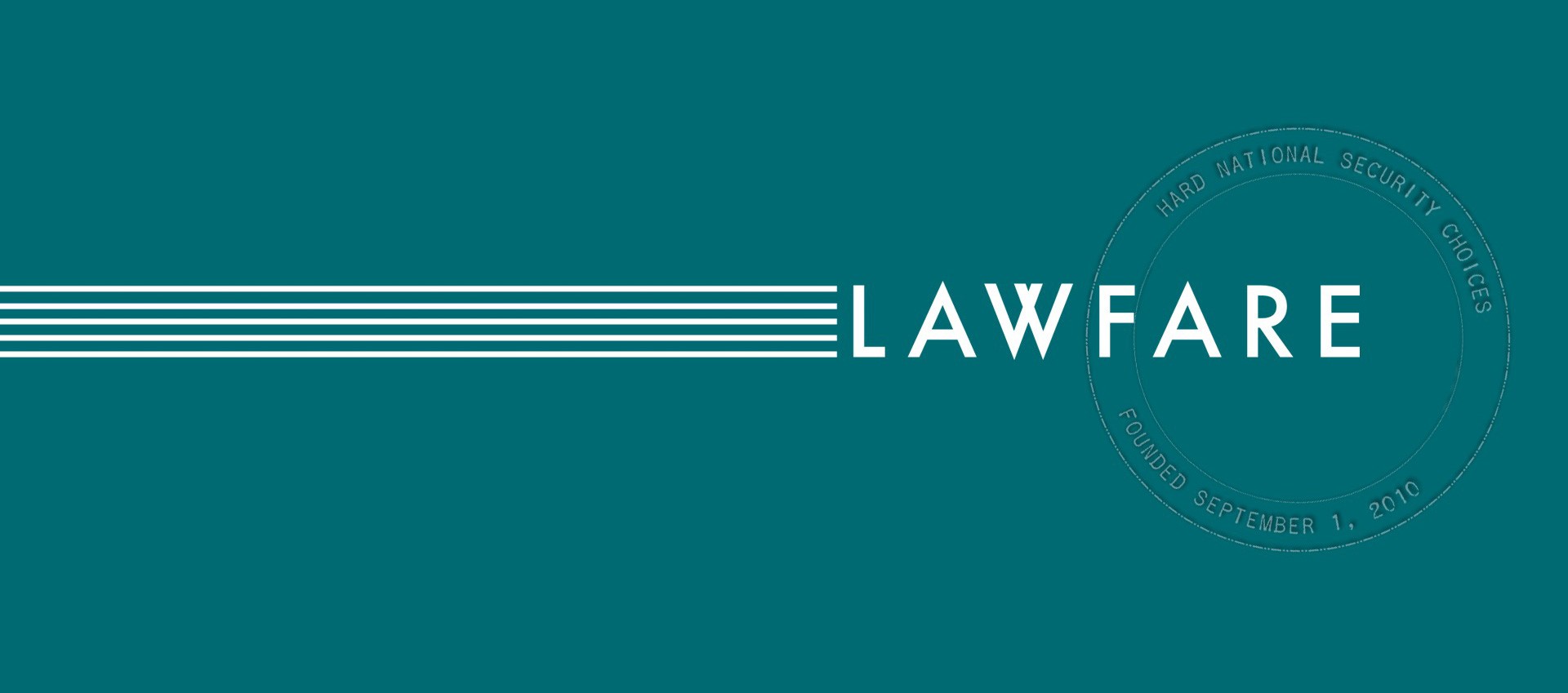Today on Lawfare
The latest on Lawfare, Sept. 27, 2022.

Published by The Lawfare Institute
in Cooperation With

Subscribe to receive this newsletter directly to your inbox.
Articles
Social Media Transparency Rules, Zauderer Standard Head to Supreme Court
Corbin Barthold analyzed the aftermath of the Eleventh Circuit’s decision in NetChoice v. Moody, arguing that the Supreme Court will have to clarify the law surrounding compelled commercial speech and potentially revisit precedents set in Zauderer v. Office of Disciplinary Counsel.
The court upheld (most) of the transparency rules because it determined that those rules are subject not to strict or even intermediate scrutiny—as speech regulations typically are—but to the relaxed “undue burden” standard found in Zauderer. An Ohio attorney was disciplined for failing to divulge, in advertisements offering contingent-fee legal representation, that a client would have to pay some costs even if her suit failed. The issue, Zauderer noted, was whether the state could require that “commercial advertising” include certain “purely factual and uncontroversial information.” Given this context, the Court subjected the pertinent disciplinary rule to minimal First Amendment scrutiny, requiring merely that it not be “unjustified or unduly burdensome.” The Eleventh Circuit acknowledged that Zauderer “is typically applied in the context of advertising and to the government’s interest in preventing consumer deception.” Nonetheless, the court declared, Zauderer “is broad enough to cover S.B. 7072’s disclosure requirements.” This is all the court said in defense of applying Zauderer. It is an assertion that glosses over much.
‘Patriotic Hacking’ Is No Exception
Jason Healey and Olivia Grinberg argued that Ukraine’s offensive cyber hacking against Russia, though perhaps for aims that the international community may agree with, is nonetheless a violation of cyber norms—which should be enforced without exceptions.
The OEWG “brought ICT-related discussions to the big floor of the United Nations” for the first time, encouraging diplomats from every state to dive into the issues of cyber conflict in detail. The resulting global diplomatic consensus to these 11 norms, therefore, can hold tremendous diplomatic power, but only if states follow those norms and call out those that are violating them. As a group of over 25 “like-minded” states affirmed in 2019, “[t]here must be consequences for bad behavior in cyberspace.” Since Russia’s invasion of Ukraine, these cyber norms are being actively undermined—and not just by Russia. These “like-minded” states—many of them Western nations—that have mobilized to provide support to Ukraine in its plight against Russia should continue to do so and loudly call out Russian atrocities. But to ensure that these norms are globally respected, these states must not facilitate selective enforcement and ignore Ukrainian violations of this hard-negotiated diplomatic consensus.
Podcasts
The Lawfare Podcast: Brian Winter on the Imminent Election Crisis in Brazil: Tyler McBrien sat down with Brian Winter, editor-in-chief of Americas Quarterly and a journalist with over a decade of experience living and reporting across Latin America, to discuss the upcoming presidential election in Brazil. They discussed the leading candidates, Jair Bolsonaro and Luiz Inácio Lula da Silva, the potential crisis that may ensue, and what’s at stake as Brazilians head to the polls on Sunday.
The Cyberlaw Podcast: President DeSantis’s First Supreme Court Nominee: Stewart Baker sat down with Alan Rozenshtein and Adam Candeub for a deep dive of the NetChoice v. Moody opinion. They considered the perspectives of the opinion’s critics and supporters, competing free expression interests of social media users and of the platforms themselves, and whether there is currently a basis for an injunction. They also talked about top news stories in cyberlaw, including the Defense Department’s review of its military information operations and Meta's Oversight Board’s criticism of Facebook’s automated image takedowns.
Lawfare Announcements
Lawfare is offering an online hacking and cybersecurity class for material supporters, led by Scott Shapiro and Sean O’Brien from Yale Law School. Find out more here.
Join Lawfare
We are looking for student contributors. The deadline to apply is September 30, 2022.
Follow us on Twitter, Facebook, YouTube, and LinkedIn. Become a material supporter on Patreon. Sign up to receive Lawfare in your inbox. Check out relevant job openings on our Job Board.



.png?sfvrsn=bd249d6d_5)

